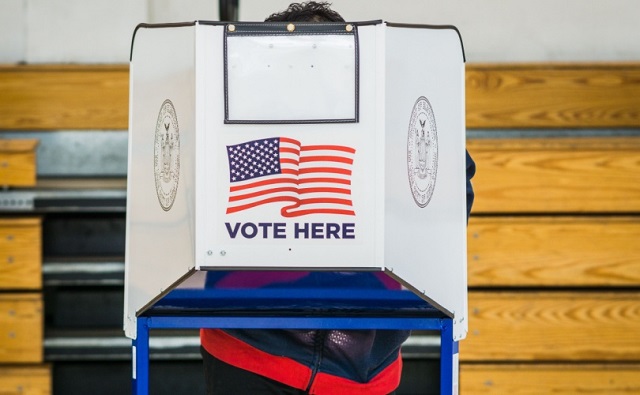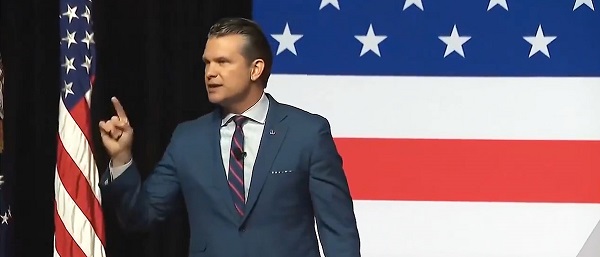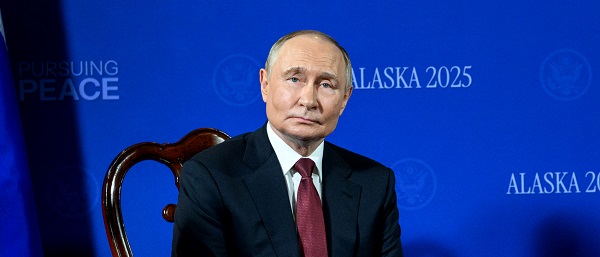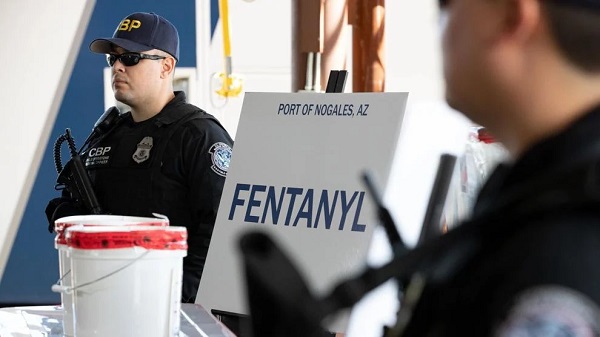International
Is the US intelligence apparatus preparing the public for future election interference?

From LifeSiteNews
Is the warning perhaps not what it seems? Is it an attempt to provide camouflage — a strategy known as ‘pre-bunking’ — for future election interference sanctioned by the Washington political machine?
The Cybersecurity and Infrastructure Security Agency (CISA) together with the Federal Bureau of Investigation (FBI) released a joint statement ostensibly intended to assure U.S. voters in advance that the 2024 election that, despite anticipated attacks on the country’s voting systems that might make getting election information hard for citizens to obtain, election results would nonetheless be unaffected and election integrity would be maintained.
The FBI is responsible for investigating and prosecuting election crimes and malicious cyber activity targeting election infrastructure. The CISA plays a role in securing election infrastructure from physical and cyber threats.
The joint statement, however, has been met with skepticism based on the earlier roles of both agencies in past elections and their participation in massive suppression of conservative voices in social media.
As such, is the warning perhaps not what it seems? Is it an attempt to provide camouflage — a strategy known as “pre-bunking” — for future election interference sanctioned by the Democrat-powered Washington political machine — a.k.a., the Deep State — that wants to maintain control of the White House and Congress at any cost?
“CISA & FBI issue bulletin that upcoming cyberattacks may ‘prevent the public from receiving timely information’ about the 2024 election,” conservative commentator Emerald Robinson wrote on X.
“These same agencies told you: America’s voting machines were never connected to the Internet,” Robinson noted.
BREAKING: CISA & FBI issue bulletin that upcoming cyberattacks may "prevent the public from receiving timely information" about the 2024 election.
These same agencies told you: America's voting machines were never connected to the Internet.
— Emerald Robinson ✝️ (@EmeraldRobinson) August 2, 2024
Jeanette Manfra, Acting Under Secretary for Cybersecurity and Communications at the Department of Homeland Security, told Congress in 2017 that America’s voting machines “are not connected to the internet.”
Manfra was responsible for the security of the nation’s voting system. Yet according to a 2020 report by NBC News, a team of 10 cybersecurity experts who specialize in voting systems and elections found nearly three dozen U.S. voting systems connected to the internet.
“We found over 35 (voting systems) had been left online and we’re still continuing to find more,” Kevin Skoglund, a senior technical adviser at the election security advocacy group National Election Defense Coalition, told NBC News at the time.
“We kept hearing from election officials that voting machines were never on the internet,” Skoglund said. “And we knew that wasn’t true. And so we set out to try and find the voting machines to see if we could find them on the internet, and especially the back-end systems that voting machines in the precinct were connecting to report their results.”
Can CISA be trusted?
“CISA has worked with Big Tech corporations to silence Americans since 2020,” noted Logan Washburn, writing at The Federalist last month. “A congressional report from last fall found it had become a “domestic intelligence and speech-police agency” whose behavior was ‘unconstitutional.’”
Last year, the Biden administration blocked the release of documents “revealing the extent to which deep state actors and their third-party allies interfered in the 2020 presidential election by pushing social media censorship,” according to a Breitbart report.
“The government seems particularly eager to stop the release of documents pertaining to the Cybersecurity and Infrastructure Security Agency (CISA), and the closely linked Election Integrity Partnership (EIP), both of which are under intense scrutiny for their 2020 interference efforts,” Breitbart’s Allum Bokhari wrote.
Bokhari reported in May 2023 on the U.S. House Homeland Security Committee’s hearing on the government’s “laundering” of censorship through NGOs and private entities:
In the runup to the 2020 election, the consortium created a system whereby state actors including the Department of Homeland Security and the State Department could file “tickets” alongside news stories, flagging them so that Big Tech platforms could subsequently suppress or attach warning labels to them.
Beyond this blatant case of a private-public censorship coalition, the EIP also engaged in partisan politics, allowing the Democratic National Committee to file tickets through the system, as well as the Democrat-aligned groups Common Cause and the NAACP.
News outlets targeted by the EIP included Breitbart News, Fox News, the New York Post, and the Epoch Times, as well as the social media accounts of prominent conservatives Charlie Kirk, Tom Fitton, Jack Posobiec, Mark Levin, James O’Keefe, and Sean Hannity, amongst others.
President Donald Trump was also frequently flagged by the consortium, as well as his sons Eric Trump and Donald Trump Jr.
In April, The Washington Examiner noted the connection of CISA and the suppression of the New York Post’s Hunter Biden laptop story just weeks before the election, which no doubt had a big impact on the election’s outcome, in favor of leftist Joe Biden and against incumbent Republican Donald Trump:
On Oct. 14, 2020, hours after the New York Post published a story based on Hunter Biden’s abandoned laptop that Twitter blocked from being shared online, the State Department’s Global Engagement Center reached out to “misinformation” researchers behind the Election Integrity Partnership, a collaboration between universities, left-wing think tanks, social media companies, and the U.S. government to thwart alleged falsehoods online in the lead-up to the presidential election. That outreach from the GEC, a foreign-focused office Republican lawmakers are investigating for its ties to anti-speech projects in the United States, was apparently thanks to guidance from the DHS and its Cybersecurity and Infrastructure Security Agency, according to internal documents.
The newly unearthed coordination underscores the major role that CISA, an agency under scrutiny from the House GOP for allegedly colluding “with Big Tech and ‘disinformation’ partners to censor Americans” in 2020, played in the Election Integrity Partnership, or EIP. Both CISA and Alex Stamos, who directed the Stanford Internet Observatory, a Stanford University office behind the EIP, have appeared to downplay CISA’s role in the partnership despite some since-released records indicating a closer relationship than previously known, the Washington Examiner reported.
CISA and the FBI: paving the way for domestic election interference?
“With Election Day less than 100 days away, it is important to help put into context some of the incidents the American public may see during the election cycle that, while potentially causing some minor disruptions, will not fundamentally impact the security or integrity of the democratic process,” CISA senior advisor Cait Conley said.
“DDoS attacks are one example of a tactic that we have seen used against election infrastructure in the past and will likely see again in the future, but they will NOT affect the security or integrity of the actual election. They may cause some minor disruptions or prevent the public from receiving timely information,” Conley suggested.
“It is important to talk about these potential issues now, because nefarious actors, like our foreign adversaries or cybercriminals, could use DDoS (Distributed Denial of Service) incidents to cast doubt on the election systems or processes,” Conley said.
“Congress is still exposing the extent of the detailed coordination platform between Big Tech platforms and the Censorship Industrial Complex,” noted Republican Rep. Darrell Issa of California, who sits on the House Judiciary Committee, in April. “Rather than promote free speech and free expression, this partnership was dedicated to denying it to those it did not favor.”
Questions remain: Did government agencies facilitate cheating and lie to the American people in 2020 in order to drag Biden across the finish line? Are they preparing to unconstitutionally install Kamala Harris in 2024?
Daily Caller
Hegseth Planning Huge Shakeup Of Top Military Command: REPORT


From the Daily Caller News Foundation
War Secretary Pete Hegseth is moving forward with a massive shakeup of military leadership, restructuring top commands and moving the U.S. focus away from Europe and the Middle East, according to a report out Monday.
Five sources with knowledge of the matter told The Washington Post the Pentagon is set to consolidate U.S. Central Command in the Middle East, U.S. European Command and U.S. Africa Command into a new larger combatant command, the U.S. International Command. Other commands would be similarly consolidated, reducing the total number of combatant commands from 11 to eight. The intended restructuring is designed both to reduce the number of admirals and four star generals and refocus the U.S. military on the Indo-Pacific and Western Hemisphere, according to the sources.
The plan would be one of the most significant changes to the military’s upper echelons in decades, and the move would bring the Pentagon more directly in line with the administration’s refocusing of priorities in the recently released National Security Strategy.
Dear Readers:
As a nonprofit, we are dependent on the generosity of our readers.
Please consider making a small donation of any amount here.
Thank you!
“As a matter of Department of War policy, we will not comment on leaked documents that we cannot authenticate and rumored internal discussions, as well as specifics of architectural discussion or pre-decisional matters,” a War Department official told the Daily Caller News Foundation. “Beyond this, any insinuation there is a divide within the Department is completely false – everyone in the Department is working to achieve the same goal under this administration.”
The Post also reports the proposal was crafted under supervision by Chairman of the Joint Chiefs of Staff Gen. Dan Caine, at Hegseth’s request. Caine will also be sharing two alternate proposals on potential restructures.
Hegseth has been looking for ways to reduce the number of four star generals in the Armed Forces, which has roughly the same amount of generals now as during World War II.
Daily Caller
Paris Climate Deal Now Decade-Old Disaster


From the Daily Caller News Foundation
By Steve Milloy
The Paris Climate Accord was adopted 10 years ago this week. It’s been a decade of disaster that President Donald Trump is rightly trying again to end.
The stated purpose of the agreement was for countries to voluntarily cut emissions to avoid the average global temperature exceeding the (guessed at) pre-industrial temperature by 3.6°F (2°C) and preferably 2.7°F (1.5°C).
Since December 2015, the world spent an estimated $10 trillion trying to achieve the Paris goals. What has been accomplished? Instead of reducing global emissions, they have increased about 12 percent. While the increase in emissions is actually a good thing for the environment and humanity, spending $10 trillion in a failed effort to cut emissions just underscores the agreement’s waste, fraud and abuse.
As a nonprofit, we are dependent on the generosity of our readers.
Please consider making a small donation of any amount here.
Thank you!
But wasting $10 trillion is only the tip of the iceberg.
The effort to cut emissions was largely based on forcing industrial countries to replace their tried-and-true fossil fuel-based energy systems with not-ready-for-prime-time wind, solar and battery-based systems. This forced transition has driven up energy costs and made energy systems less reliable. The result of that has been economy-crippling deindustrialization in former powerhouses of Germany and Britain.
And it gets worse.
European nations imagined they could reduce their carbon footprint by outsourcing their coal and natural gas needs to Russia. That outsourcing enriched Russia and made the European economy dependent on Russia for energy. That vulnerability, in turn, and a weak President Joe Biden encouraged Vladimir Putin to invade Ukraine.
The result of that has been more than one million killed and wounded, the mass destruction of Ukraine worth more than $500 billion so far and the inestimable cost of global destabilization. Europe will have to spend hundreds of billions more on defense, and U.S. taxpayers have been forced to spend hundreds of billions on arms for Ukraine. Putin has even raised the specter of using nuclear weapons.
President Barack Obama unconstitutionally tried to impose the Paris agreement on the U.S. as an Executive agreement rather than a treaty ratified by the U.S. Senate. Although Trump terminated the Executive agreement during his first administration, President Joe Biden rejoined the agreement soon after taking office, pledging to double Obama’s emissions cuts pledge to 50 percent below 2005 levels by 2030.
Biden’s emissions pledge was an impetus for the 2022 Inflation Reduction Act that allocated $1.2 trillion in spending for what Trump labeled as the Green New Scam. Although Trump’s One Big Beautiful Bill Act reduced that spending by about $500 billion and he is trying to reduce it further through Executive action, much of that money was used in an effort to buy the 2024 election for Democrats. The rest has been and will be used to wreck our electricity grid with dangerous, national security-compromising wind, solar and battery equipment from Communists China.
Then there’s this. At the Paris climate conference in 2015, U.S. Secretary of State John Kerry stated quite clearly that emissions cuts by the U.S. and other industrial countries were meaningless and would accomplish nothing since the developing world’s emissions would be increasing.
Finally, there is the climate realism aspect to all this. After the Paris agreement was signed and despite the increase in emissions, the average global temperature declined during the years from 2016 to 2022, per NOAA data.
The super El Nino experienced during 2023-2024 caused a temporary temperature spike. La Nina conditions have now returned the average global temperature to below the 2015-2016 level, per NASA satellite data. The overarching point is that any “global warming” that occurred over the past 40 years is actually associated with the natural El Nino-La Nina cycle, not emissions.
The Paris agreement has been all pain and no gain. Moreover, there was never any need for the agreement in the first place. A big thanks to President Trump for pulling us out again.
Steve Milloy is a biostatistician and lawyer. He posts on X at @JunkScience.
-

 Censorship Industrial Complex1 day ago
Censorship Industrial Complex1 day agoDeath by a thousand clicks – government censorship of Canada’s internet
-

 Alberta2 days ago
Alberta2 days agoSchools should go back to basics to mitigate effects of AI
-

 International2 days ago
International2 days agoAt Least 15 Killed In Shooting Targeting Jewish Community At Australia’s Bondi Beach, Police Say
-

 Daily Caller2 days ago
Daily Caller2 days agoChinese Billionaire Tried To Build US-Born Baby Empire As Overseas Elites Turn To American Surrogates
-

 Great Reset2 days ago
Great Reset2 days agoViral TikTok video shows 7-year-old cuddling great-grandfather before he’s euthanized
-

 Business2 days ago
Business2 days agoMajor tax changes in 2026: Report
-

 International2 days ago
International2 days agoRussia Now Open To Ukraine Joining EU, Officials Briefed On Peace Deal Say
-

 Crime1 day ago
Crime1 day agoTrump designates fentanyl a ‘weapon of mass destruction’



